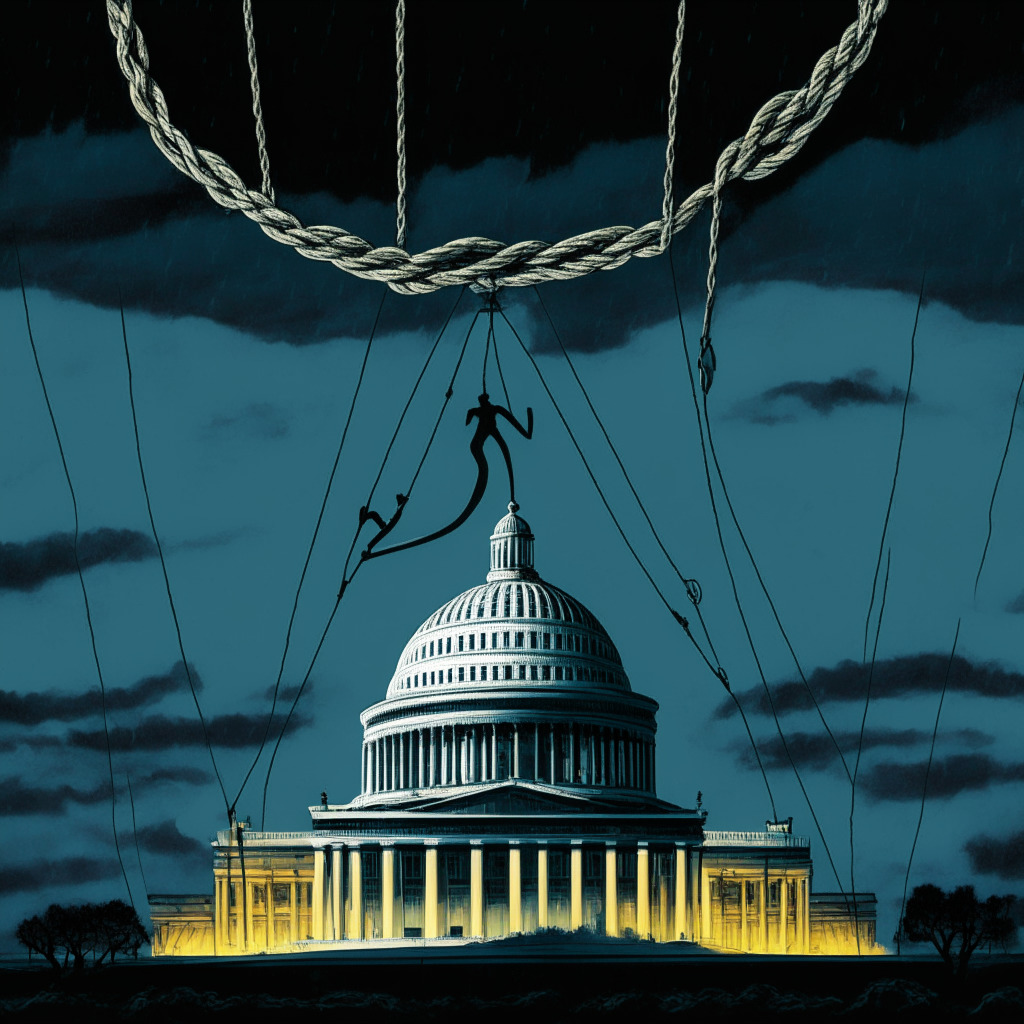Last week, a major financial shift occurred when BlackRock, a $9.5 trillion asset manager, applied for a Bitcoin exchange-traded fund (ETF) with the U.S. Securities and Exchange Commission (SEC). This move seems to have boosted investor sentiment, leading to a 12% increase in Grayscale’s Bitcoin Trust (GBTC) share prices before markets closed on Friday.
A Bitcoin ETF like the one BlackRock is proposing would allow traditional investors the opportunity to gain exposure to Bitcoin without the need to actually purchase and hold the asset. The GBTC operates in a similar manner, allowing investors to trade shares in trusts holding pools of Bitcoin. However, the “GBTC Discount” recently hit a monthly low of -36.61%, indicating the share prices are not accurately reflecting the net asset value (NAV) of GBTC’s Bitcoin holdings.
Grayscale, a subsidiary of Digital Currency Group (DCG), has been seeking approval for a spot Bitcoin ETF for several years. Their first application in 2016 was withdrawn a year later as the regulatory environment was not considered advanced enough for a successful launch. Grayscale tried again in 2021, but regulators rejected the application citing concerns about market manipulation.
This ongoing struggle led Grayscale to take legal action against the SEC, with the court case reaching a critical point in March when judges questioned the regulatory agency’s decision-making process. Despite the lengthy legal battle, investors appear to be optimistic. BlackRock’s impressive track record in ETF applications (currently at 575-1) could breathe new life into Grayscale’s GBTC product.
However, it is essential to consider the SEC’s seemingly relentless “anti-crypto” stance. The commission has sued many well-known industry players in recent weeks, and SEC Chair Gary Gensler’s history as a staunch cryptocurrency adversary must be taken into account. Gensler, who once taught a Bitcoin and Blockchain course at MIT, now remains on the regulatory frontier for the cryptocurrency space.
The approval of a Bitcoin ETF could significantly impact the future of cryptocurrency and its integration into traditional financial markets. As the debate unfolds, both Grayscale and BlackRock’s influence brings a fascinating dimension to the conversation, ultimately determining whether digital assets can successfully bridge the gap between the crypto world and mainstream finance.
As two financial titans of the blockchain era come face-to-face with regulatory hurdles, their combined effort may be precisely what the industry needs for wider cryptocurrency adoption. Whether their efforts will ultimately result in a Bitcoin ETF approval from the SEC remains to be seen. The outcome of this ongoing conflict continues to impact the market and investor sentiment, defining the path forward for the blockchain and cryptocurrency sector.
Source: Decrypt




